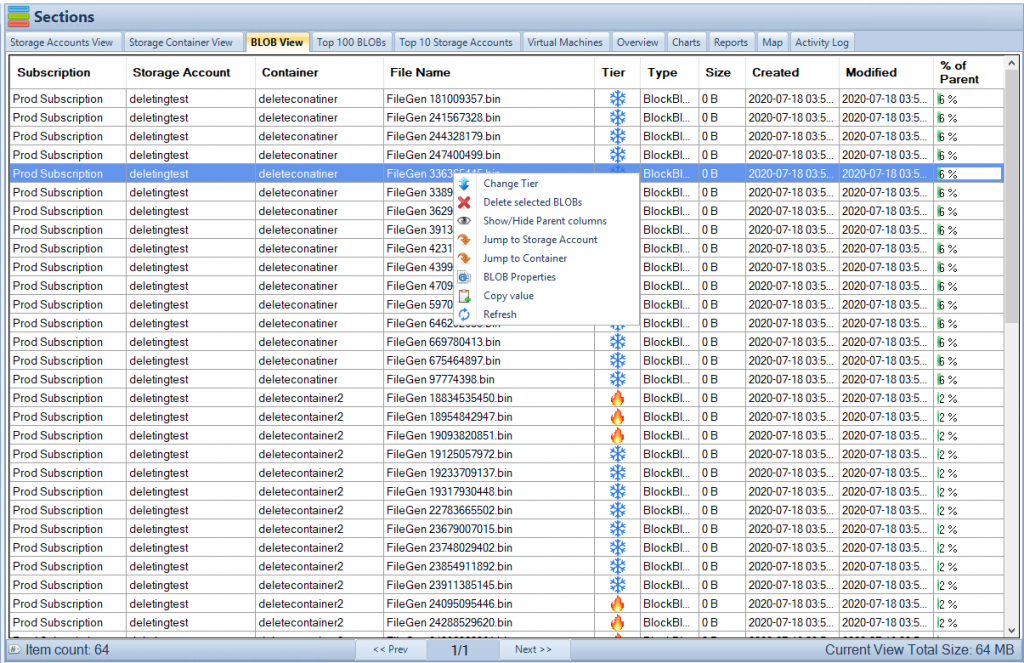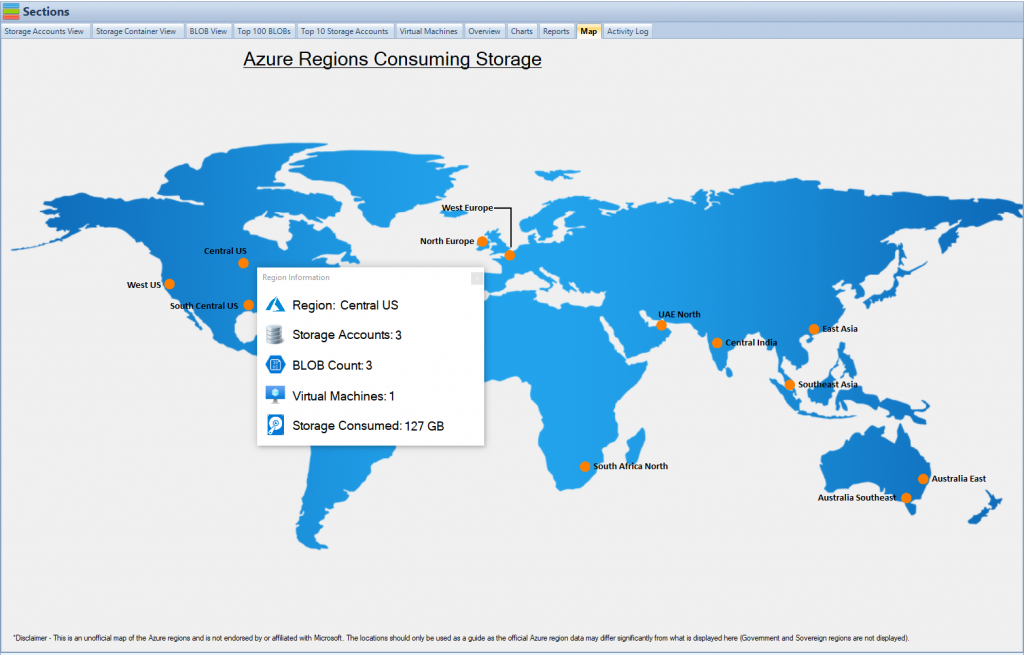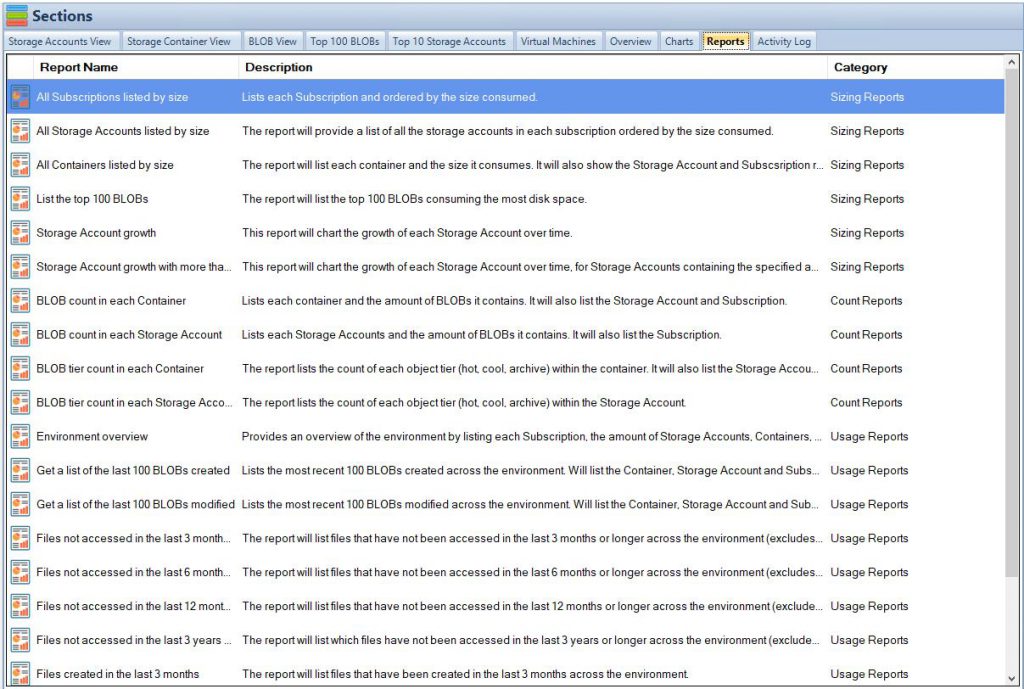The Azure Files update in 2023 introduced Azure Active Directory support for REST API, enabling SMB file share access with OAuth authentication. This advancement improved the scalability of Azure Virtual Desktop by increasing the root directory handle limit from 2,000 to 10,000. Additionally, the public preview of geo-redundant storage for large file shares enhanced capacity and performance, while the Premium Tier now guarantees a 99.99% uptime SLA for all premium shares.
In 2022, Azure AD Kerberos authentication for hybrid identities was a highlight, as it built upon FSLogix profile container support. Also, SUSE Linux gained compatibility with SAP HANA System Replication and Pacemaker.
In 2021, premium Azure file shares received heightened baseline and burst IOPS, catering to POSIX-compliant, distributed file shares. NFSv4.1 protocol was enabled for premium file shares, enhancing flexibility and alignment with standard shares. SMB Multichannel was introduced, offering parallel connections for network optimization, along with SMB 3.1.1 with additional encryption modes. Azure Files started supporting storage reservations for premium, hot, and cool tiers, optimizing cost efficiency. The portal experience for domain joining was simplified, and Azure Files management became accessible through the control plane, streamlining management actions through various tools.
These updates represent a continual effort by Microsoft to improve the functionality, performance, and security of Azure Files, reflecting their commitment to providing a robust and efficient file-sharing service.

Enhanced Features of Azure Files
Azure Active Directory Support for REST API
Azure Active Directory (Azure AD) support for REST API is a significant enhancement as it enables Server Message Block (SMB) file share access using OAuth authentication. This feature enhances security by allowing only authenticated users to access file shares. It is particularly beneficial for organizations that have already integrated Azure AD and want to leverage it for secure file access.
Increased Root Directory Handle Limit
The scalability of Azure Virtual Desktop was improved by increasing the root directory handle limit from 2,000 to 10,000. This enhancement allows for more simultaneous connections to the root directory, enabling larger organizations to use Azure Virtual Desktop more effectively.
Geo-Redundant Storage for Large File Shares
The introduction of geo-redundant storage for large file shares in public preview is another noteworthy update. This feature boosts both the capacity and performance of file shares, making it easier for organizations to manage large amounts of data across different geographical locations.
99.99% Uptime SLA for Premium Shares
The Premium Tier of Azure Files now guarantees a 99.99% uptime Service Level Agreement (SLA) for all premium shares. This improvement ensures higher availability and reliability of premium file shares, which is crucial for businesses that require continuous access to their data.

Highlighted Updates from Previous Years
Azure AD Kerberos Authentication for Hybrid Identities (2022)
In 2022, Azure AD Kerberos authentication for hybrid identities was a significant update. This feature further built upon FSLogix profile container support, enhancing the security and ease of use for organizations with hybrid identities.
Compatibility of SUSE Linux with SAP HANA System Replication and Pacemaker (2022)
Also in 2022, SUSE Linux gained compatibility with SAP HANA System Replication and Pacemaker. This update is essential for organizations that use SAP HANA for their database needs and want to ensure high availability and disaster recovery.
Heightened Baseline and Burst IOPS for Premium Azure File Shares (2021)
In 2021, premium Azure file shares received heightened baseline and burst Input/Output Operations Per Second (IOPS), which caters to POSIX-compliant, distributed file shares. This improvement enhances the performance of file shares, making it easier for organizations to manage large amounts of data.
Enablement of NFSv4.1 Protocol for Premium File Shares (2021)
Also in 2021, the NFSv4.1 protocol was enabled for premium file shares, enhancing flexibility and alignment with standard shares. This update allows organizations to use the NFSv4.1 protocol, which is essential for applications that require POSIX compliance.
Introduction of SMB Multichannel (2021)
SMB Multichannel was introduced in 2021, offering parallel connections for network optimization. This feature enhances the performance of file shares by allowing multiple simultaneous connections, improving data transfer rates and network utilization.
Additional Encryption Modes with SMB 3.1.1 (2021)
Also in 2021, SMB 3.1.1 was introduced with additional encryption modes, enhancing the security of file shares. This update provides more options for organizations to encrypt their data, ensuring that it is protected from unauthorized access.
Support for Storage Reservations (2021)
In 2021, Azure Files began supporting storage reservations for premium, hot, and cool tiers, optimizing cost efficiency. This feature allows organizations to reserve storage capacity in advance, ensuring that they have enough space for their data and reducing costs by avoiding over-provisioning.
Simplified Portal Experience for Domain Joining (2021)
The portal experience for domain joining was simplified in 2021, making it easier for organizations to integrate their Azure Files with their existing Active Directory domain. This update streamlines the process of domain joining, reducing the administrative effort required.
Accessible Azure Files Management through Control Plane (2021)
Azure Files management became accessible through the control plane in 2021, streamlining management actions through various tools. This update makes it easier for administrators to manage their file shares, reducing the time and effort required.

Reducing your Azure Files Costs
Saving money with Azure Files using Cloud Storage Manager is a strategic and efficient solution for businesses looking to optimize their cloud storage costs. This robust software offers a comprehensive set of tools that enable users to effectively manage, monitor, and optimize their Azure Files storage resources. By leveraging features such as automated tiering, data compression, and deduplication, Cloud Storage Manager empowers organizations to make the most of their storage budget. Its intuitive interface and advanced analytics provide valuable insights into usage patterns, allowing businesses to identify opportunities for cost reduction and resource allocation refinement. With Cloud Storage Manager, companies can achieve a higher level of control over their Azure Files storage, ultimately leading to minimized expenses and maximized return on investment in the cloud infrastructure.
Conclusion
The Azure Files update in 2023 brought several significant enhancements, including Azure AD support for REST API, increased root directory handle limit, geo-redundant storage for large file shares in public preview, and a 99.99% uptime SLA for premium shares. These updates, along with the highlighted updates from previous years, reflect Microsoft’s commitment to continuously improving the functionality, performance, and security of Azure Files. Organizations can leverage these enhancements to optimize their file-sharing operations, ensuring secure, reliable, and efficient access to their data.

